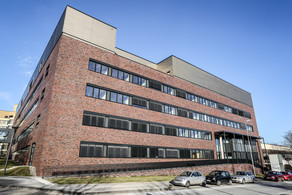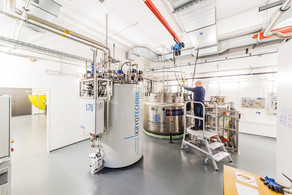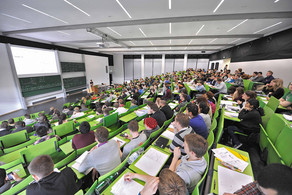Immune system as organ at risk in radiotherapy
- Kolloquium

Immune system as organ at risk in radiotherapy
Radiotherapy (RT) remains one of the most effective tools in cancer treatment, yet its overall impact on the patient's immune system, is not fully understood, particularly in the context of particle therapy. While RT can directly kill tumor cells and trigger beneficial anti-tumor immune responses that contribute to more tumor control, it may also damage immune cells during treatment or create conditions that suppress its functionality. Despite growing interest in combining RT with immunotherapy, most models of this interplay have focused on spatial or dose factors, often overlooking time as a 4th dimension.
In this talk, I will talk about the multifaceted role of anti-tumor immune responses and their complex interplay with ionizing radiation and the resulting impact on the outcomes. I will present efforts to incorporate time as an essential component in modeling RT–immune interactions. Rather than only investigating where or how much radiation is delivered, we demonstrate that understanding when key hit events occur provides valuable insights for optimizing treatment. This perspective redefines the immune system as a new “organ at risk” in RT treatment planning, an aspect generally absents in standard protocols.
Ultimately, a clearer grasp of how the exact time evolution and dose distribution of radiation delivery affect the immune system holds significant clinical promise. The ease of modifying RT machine parameters means these insights could have immediate, actionable potential for improving synergy between radiotherapy and immunotherapy.








